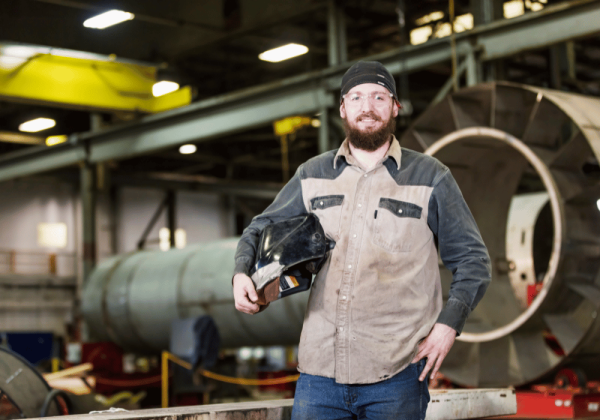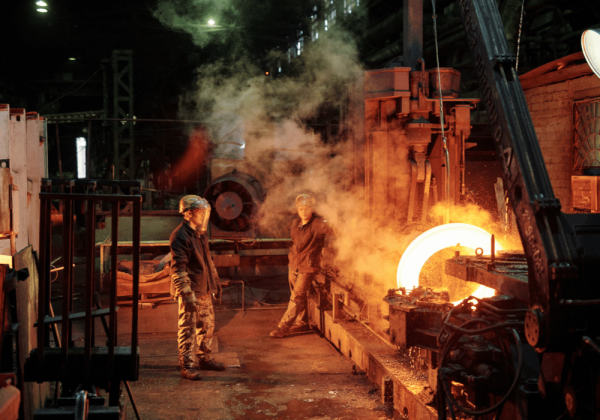When it comes to finding the right solutions for metal fabrication, speed and precision are essential. Automation can be the key to success in meeting those two critical objectives efficiently and cost-effectively – especially with tight deadlines looming ahead. Developments in recent years have made automation a more viable option than ever before, giving metal fabricators access to faster production rates while ensuring quality assurance standards are maintained. In this blog post, we’ll share how automated technologies can revolutionize your metal fabrication processes and propel you towards greater productivity.
Overview of Metal Fabrication and Automation Solutions
Metal fabrication and automation solutions are critical in today’s era of advanced mechanics and engineering. This innovative technology has transformed metal production by increasing its efficiency, speed, and throughput for manufacturing plants. Metal fabrication and automation solutions’ primary aspect is to automate the repetitive and monotonous tasks while improving the quality of the final products. Furthermore, it allows for customization and flexibility to produce more intricate parts with precision. Advanced automation technology, along with skilled workers, can carry out tasks like laser cutting, bending, welding, and assembly with extreme precision and speed. It is now easier than ever to achieve high-quality products, reduce material waste, and meet customer requirements. Overall, metal fabrication and automation solutions have revolutionized the manufacturing industry, making it faster, more efficient, and more cost-effective.
Advantages of Implementing Automation in Metal Fabrication
 Automation has revolutionized the metal fabrication industry, offering advantages that were previously impossible to achieve. The implementation of automation has led to increased precision, improved efficiency, and reduced costs. By utilizing robotics and artificial intelligence, metal fabrication companies can now produce consistent and high-quality products at a faster rate, while also reducing the need for manual labor. Additionally, automation has made it possible to complete tasks that were once unreachable, such as intricate designs and highly complex components. Ultimately, implementing automation in metal fabrication is a smart choice for businesses looking to stay competitive in the industry and increase their profitability.
Automation has revolutionized the metal fabrication industry, offering advantages that were previously impossible to achieve. The implementation of automation has led to increased precision, improved efficiency, and reduced costs. By utilizing robotics and artificial intelligence, metal fabrication companies can now produce consistent and high-quality products at a faster rate, while also reducing the need for manual labor. Additionally, automation has made it possible to complete tasks that were once unreachable, such as intricate designs and highly complex components. Ultimately, implementing automation in metal fabrication is a smart choice for businesses looking to stay competitive in the industry and increase their profitability.
How Automation can Streamline Processes and Reduce Waste
Automation has completely transformed the way businesses operate today. It has revolutionized production lines and made many processes faster, easier, and more efficient. With automation, managers can analyze data faster, identify areas where waste is occurring, and implement solutions to reduce it. Automation software can help streamline processes, eliminate manual work, and reduce the risk of errors. This is because automation can handle repetitive and time-consuming tasks, allowing your employees to focus on more important aspects of the business. In addition, automation tools help employees to access relevant data quickly, so they can come up with faster and more informed decision-making. All in all, automation has the potential to significantly reduce waste while simplifying processes, helping businesses to achieve their goals and grow rapidly.
Different Types of Automation Solutions Available for Metal Fabricators
Metal fabrication is a process that requires a lot of precision and attention to detail to create the desired results. Automation has become an essential part of metal fabrication, as it significantly improves productivity, quality, and safety. There are many different types of automation solutions available for metal fabricators, each with its own unique set of benefits. For instance, machine tending robots can handle repetitive tasks while ensuring accuracy and reducing the risk of injuries. CNC machines and plasma cutters use computer-controlled technology to cut, drill, and shape metal parts with exceptional accuracy. 3D printing also provides a new way of producing complex structures and parts with high precision. With so many automation solutions available, metal fabricators have more options than ever before to improve their production processes and stay competitive in today’s market.
Safety Considerations When Utilizing Automation in Metal Fabrication
As the metal fabrication industry rapidly progresses towards automation, it is essential to consider the safety implications of such advanced technology. Investing in automation can increase efficiency, lower production costs, and minimize worker fatigue. It also brings potential hazards that require careful handling. As robots become more sophisticated, they can pose serious risks to human operators. It is crucial to thoroughly evaluate automation solutions and engage in comprehensive safety training programs to prevent workplace accidents. By adhering to safety guidelines and implementing necessary precautions, the benefits of automation in metal fabrication can be realized safely and effectively.
Challenges and Solutions to Implementing Automation in Metal Fabricating Operations
 The introduction of automation in metal fabricating operations has brought significant changes to the industry, allowing for increased efficiency, productivity and cost savings. However, the implementation of such technology within an existing operation can be a daunting task. Challenges such as the high initial cost, the need for specialized training and the potential job displacement of workers can all pose difficulties in transitioning to automation. Despite these challenges, companies can benefit from automating their metal fabricating operations by embracing solutions such as careful planning, investing in employee training and re-allocation, and choosing the right automation technology to fit their specific needs. With a strategic and adaptable approach to implementing automation, companies can achieve success in an increasingly competitive market.
The introduction of automation in metal fabricating operations has brought significant changes to the industry, allowing for increased efficiency, productivity and cost savings. However, the implementation of such technology within an existing operation can be a daunting task. Challenges such as the high initial cost, the need for specialized training and the potential job displacement of workers can all pose difficulties in transitioning to automation. Despite these challenges, companies can benefit from automating their metal fabricating operations by embracing solutions such as careful planning, investing in employee training and re-allocation, and choosing the right automation technology to fit their specific needs. With a strategic and adaptable approach to implementing automation, companies can achieve success in an increasingly competitive market.
Implementing automation in metal fabrication shops can lead to substantial benefits, like increased efficiency and improved safety. It’s clear that by taking advantage of the time-tested capabilities of modern automation solutions, metal fabricators will be able to improve their processes as well as benefit from greater productivity now and far into the future.
